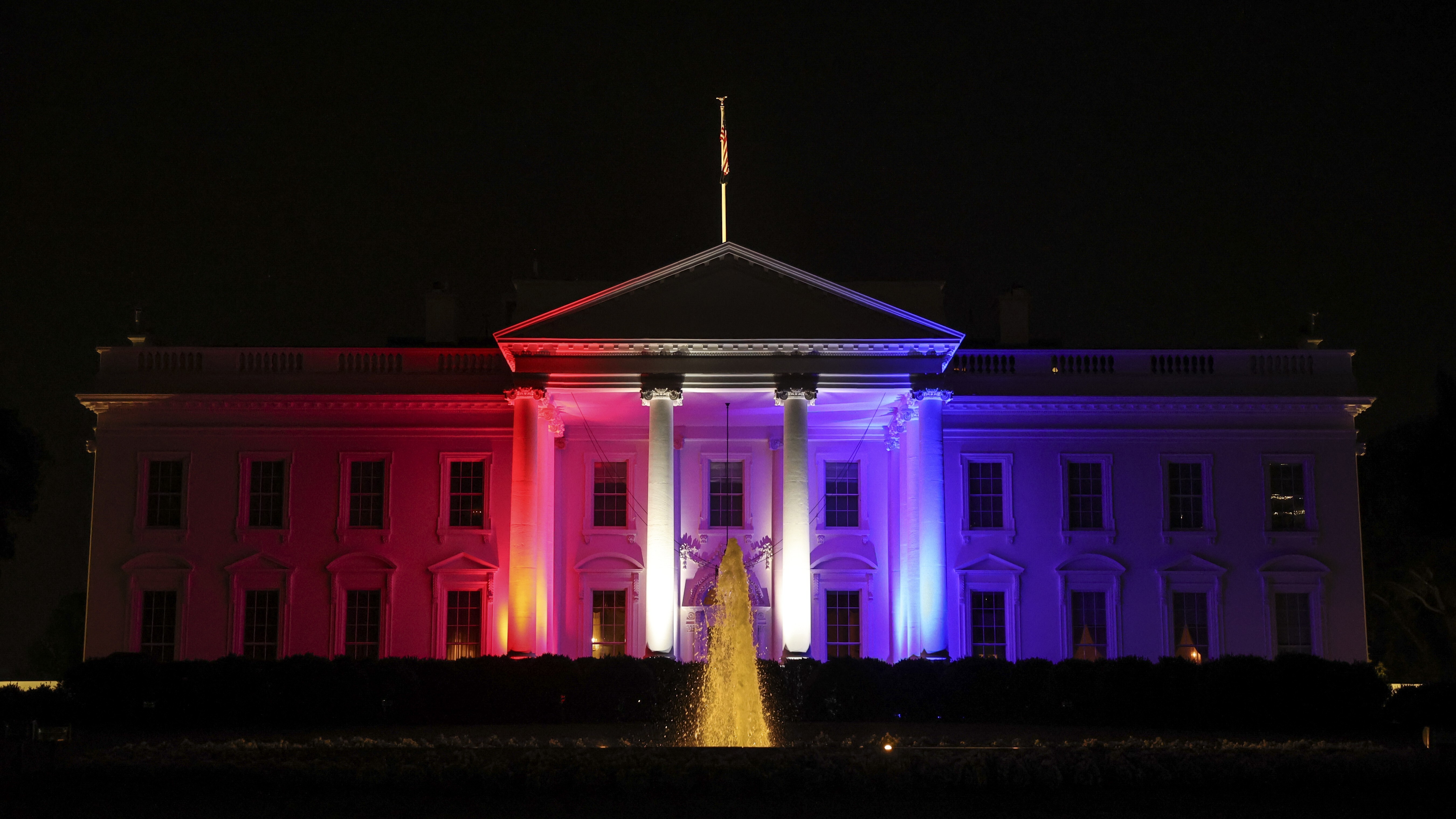Trump administration touts Genesis Mission to try and win the AI race—White House compares scope of its initiative to the Manhattan Project
China could already be looking at the U.S. in the rearview mirror.

As the worldwide AI gold rush continues apace, the United States government continues to signal an urgent need for American leadership in this still-murky field. Yesterday, President Trump signed a new executive order outlining what the administration calls the Genesis Mission, an initiative that seeks to spur a nationwide effort to make the U.S. the world leader in AI technology and its practical application.
The White House's press release emphasizes the importance of its existing AI Action Plan, and compares the scale of its effort to the Manhattan Project, the initiative that produced the atomic bomb during World War II.
According to the new executive order, the plan is to be carried out by the Department of Energy (DoE), which controls key supercomputing resources in the USA among its other responsibilities. Secretary Chris Wright states: "The Genesis Mission will dramatically accelerate scientific discovery, strengthen national security, secure energy dominance, enhance workforce productivity, and multiply the return on taxpayer investment into research and development." There's no word on how the Genesis Mission is meant to be funded.
In its ideal form, the project is tasked with building an AI platform to collect federal scientific datasets to train AI models for the practical goal of solving at least 20 technological challenges. These will be collected among the areas of materials, manufacturing, biotechnology, nuclear fusion and fission energy, quantum information, semiconductors, and electronics.
Given the Genesis Mission is meant to be coordinated among several agencies and private partners, additional challenges can be proposed by those stakeholders. The challenges will be reviewed and adjusted yearly.
The first stage of the project will be to identify logical and physical resources, namely computing infrastructure, datasets, and models. The Genesis Mission could to make use of the supercomputers at DoE's national laboratories, but will also collaborate with agencies and partners "possessing advanced AI, data, or computing capabilities or scientific domain expertise."
That's a slightly curious statement, as most any capacity for datacenter hardware and AI chip manufacturing is de facto signed for for multiple years, meaning it's unclear whether the DoE wants to build out its own datacenters, rent existing capacity, or, most likely, both. An unnamed source at the White House told the New York Times that Nvidia, AMD, HP, and Dell have agreed to build facilities within national laboratories.
Get Tom's Hardware's best news and in-depth reviews, straight to your inbox.
As for model training data, the project wants to ensure access to "appropriate datasets, including proprietary, federally curated, and open scientific datasets, in addition to synthetic data generated through DOE computing resources". Interestingly, the document makes repeated mentions of intellectual property protection and provenance tracking, presumably in the context of public-private partnerships, including "innovations arising from AI-directed experiments."
A program of this scale adds to the growing concerns about dwindling supplies and high prices for electricity, prompting the DoE Secretary to state the project should “make [the U.S.'] electricity grid more efficient and reverse price rises that have infuriated American citizens." The matching press release at energy.gov clearly states the Mission "will accelerate advanced nuclear, fusion, and grid modernization using AI to provide affordable, reliable, and secure energy for Americans."
There are no details on exact grid and generation upgrades, though that sentence seems to imply there could be a welcome nationwide effort to upgrade the nation's aging power infrastructure, and potentially build additional nuclear power plants and/or renewable energy farms.
The press release also makes repeated mentions of concerns with cybersecurity, an understandable notion given that how the main opponent is China, and the global supply chain of AI chips and datacenter hardware is, for now, manufactured or assembled in the region.
The Genesis Mission is an interesting proposition, especially in the face of the 15% export tax applied on Nvidia and AMD chips, and the fact that the U.S. government now holds 10% of Intel. On the one hand, it can be argued that there's no government AI effort that matches what companies like OpenAI, Google, and xAI have achieved—or at least, any made public. However, the project clearly outlines its intention to participate with industry partners, likely giving them a boost up the AI road, even if just with funding.
Given that even Nvidia's leather-clad man Jensen Huang believes that China is about to be ahead in the AI race, perhaps it's high time the U.S. government got its sneakers out.

Follow Tom's Hardware on Google News, or add us as a preferred source, to get our latest news, analysis, & reviews in your feeds.

Bruno Ferreira is a contributing writer for Tom's Hardware. He has decades of experience with PC hardware and assorted sundries, alongside a career as a developer. He's obsessed with detail and has a tendency to ramble on the topics he loves. When not doing that, he's usually playing games, or at live music shows and festivals.